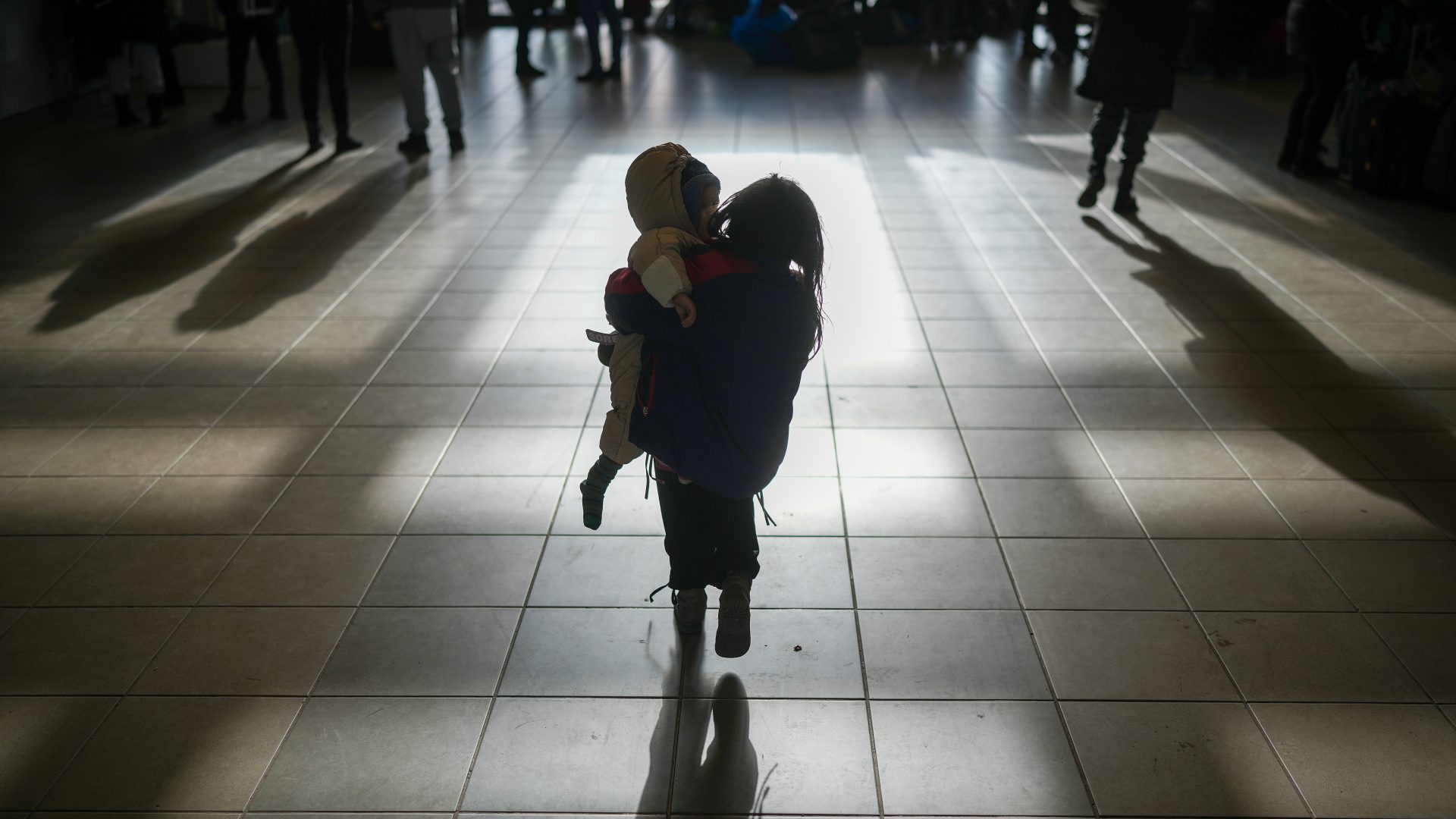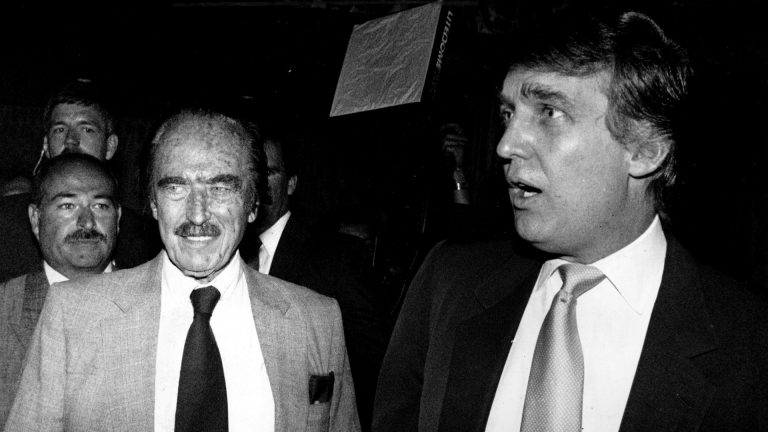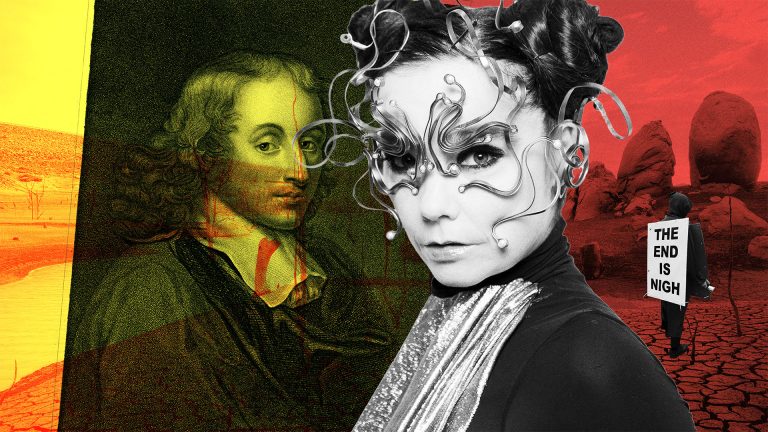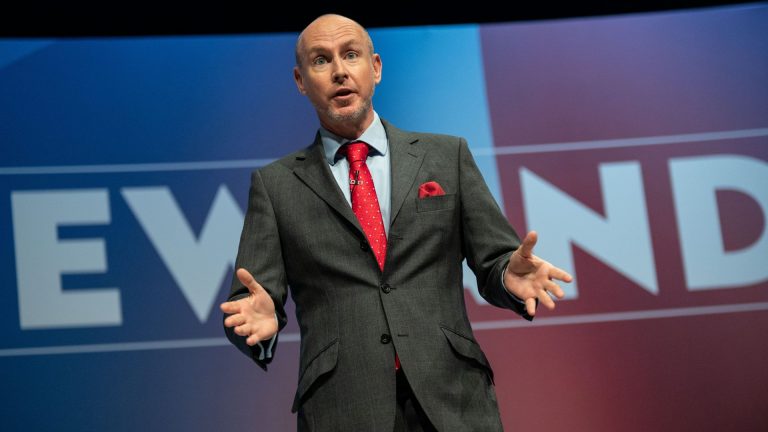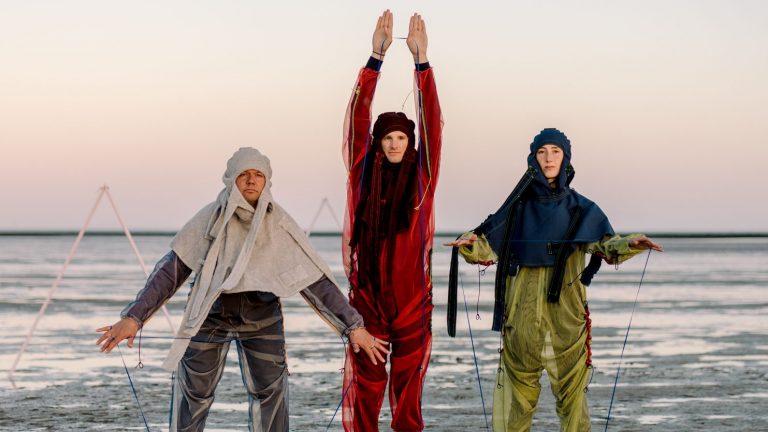As the Russian invasion of Ukraine gathered pace and refugees poured out of the country in their hundreds of thousands, foreign secretary Liz Truss said the government was “urgently looking at what more we can do” to help them.
This took a while. It must have been quite a mystery to them, after all nobody knew in advance that this was going to happen – if only there was some ready-made humanitarian plan to allow them into European countries without visas or other bureaucracy, let them stay for at least three years without seeking asylum and allow them to work. Oh wait, they did, and there was? Who knew?
Eventually, after days of pressure – particularly from Yvette Cooper, the persistent shadow home secretary – and several anaemic proposals, including more staff to screen visa applications in countries near Ukraine and junior minister Kevin Foster’s suggestion that refugees apply to be fruit pickers, home secretary Priti Patel announced a new plan to allow up to 200,000 Ukrainians into the United Kingdom.
It’s not as generous as billed. Ukrainian refugees still have to apply for visas and they still need to go through security checks – in case they’re Russian infiltrators – before being allowed to enter and live in the UK for an initial 12 months. It puts limits to the kind of people to whom the UK will give refuge, unlike the EU plan.
Close relatives of Ukrainian people already settled in the UK, including adult parents, grandparents, children over 18 and siblings can come, but other Ukrainian refugees will have to wait until separate plans for humanitarian sponsorship by UK communities, private sponsors or local authorities can be put into to place. Typically, these schemes take a long time to set up and are usually slow and labour-intensive to process.
Applicants have complained that the helpline provided was staffed by people who had no idea what the policy was, and Cooper had further questions: “Does the sponsoring family member have to be British or have indefinite leave to remain? What about Ukrainians here on work visas, on study visas, who have come maybe as lorry drivers or on visitor visas? Surely she is not expecting to turn their families away? When people are fleeing Russian authoritarianism or war I assume she will not be applying a test based on which bureaucratic box UK residents tick.”
Patel and other government officials regularly preface their announcements with claims of Britain’s extreme generosity, but the clue that this just isn’t true is in her description of the new “bespoke” humanitarian route.
As Colin Yeo, author of Welcome to Britain, Fixing Our Broken Immigration System, tweeted: “The word is significant. It is rejection of the existing international framework for the protection of refugees.”
Afghan refugees fleeing the disastrous US exit of their country had a “bespoke” system. Now the thousands who were airlifted in those chaotic days in August are mostly languishing in hotels – at a total cost of £4.7 million a day when including other asylum seekers also still in hotels – because the preference for stop-start “bespoke” schemes over a seamless, efficient, wider refugee policy means that accommodation is difficult to source and keep in the pipeline.
Thousands of other Afghans who could not make it out in time – now under the scope of a much-trumpeted, much delayed “bespoke” resettlement scheme – are left to find their dangerous way across to Europe, after which they might not get a hearing because the hardline Nationality and Borders Bill currently facing ire in the House of Lords intends to criminalise those who arrive by “irregular” routes. Fleeing through dangerous territory without papers or visas and turning up at UK borders (as refugees are wont to do) – bad. Getting a visa, buying a plane ticket and sauntering through customs with your passport (more commonly known as tourist travel) – good.
The same would apply to Ukrainians and all other nationalities, including Syrians fleeing civil war, whose “bespoke” resettlement programme meant they could only come from refugee camps or community refuge in the Middle East after a long, painstaking process.
Nationality-specific systems can be costly, inefficient, and hierarchical. Afghanistan is still imploding – how much focus will there be on their plight now? There is always the danger that when one nationality is in the spotlight, the others are forgotten.
You can’t expect a government that authored the Nationality and Borders Bill, which also includes the right to strip British citizenship from people of other heritages who were born here, to be particularly generous – especially pressure from people such as Conservative MP Sir Edward Leigh, who declared that Lincolnshire had already done its bit for eastern Europeans and thanked Patel for keeping immigration rules in place. But the criticism comes nonetheless.
Enver Solomon, chief executive of the Refugee Council, said the government’s plan to merely relax visa requirements for Ukrainian refugees “falls well short of what is needed and does very little to reassure Ukrainians fleeing war and bloodshed that they will be able to seek sanctuary in our country.”
Solomon, who has called the Borders bill “cruel and discriminatory”, said the government plans for Ukrainians looked “mean spirited” compared to the EU.
At least the government was pushed from its initial, visibly uncaring, stance, partly because the immediacy and the proximity of the humanitarian crisis led to a public outcry. For the EU, the horrors unfolding in its midst led to a surprisingly swift and open response.
But in the background, a darker narrative has emerged, as some of the pleas to help the Ukrainians centred around the feeling that they are “just like us” – for which read, white, educated, middle-class Europeans. Tim Stanley, Daily Telegraph writer and historian, caused anger for saying on Radio Four’s “Thought for the Day” that “Ukraine has touched the West in a way that Syria or Yemen did not, and one of the reasons is that being a European country, it looks so familiar.” A former deputy prosecutor general from Ukraine expressed his horror that now blonde, blue-eyed people were being killed. Television reporters spoke about Ukraine being a place – “unlike Iraq or Afghanistan” – that was “relatively civilised”.
That good refugee, bad refugee concept also raised its head through stories of people of colour – at least some of them international students in Ukraine’s high quality but lower cost universities – being refused entry to Poland and mistreated on the borders. Europe’s unusual solidarity around taking Ukrainian refugees is laudable, but it is undermined by the fact that asylum seekers from the Middle East and Africa are still being held in detention centres in border countries such as Greece or kept away altogether in Turkey or Libya as a result of the “Fortress Europe” policies created in the age of populism.
Juan Fernando Lopez Aguilar, Chair of the European Parliament’s European Parliament’s Committee on Civil Liberties, Justice and Home Affairs, has long called for EU countries to more equitably share out the responsibility for hosting asylum seekers, and since the Ukraine crisis has been speaking out about this need.
During the Syrian crisis, several countries opposed to the idea of sharing, creating an imbalance with countries such as Germany, Sweden and Mediterranean border states dealing with most of the refugees on their own. Now, erstwhile refuseniks, including Poland and Hungary, are opening their doors to the Ukrainians. The boot is on the other foot.
Could this be a chance for EU countries to finally create a more humane, coordinated policy that tones down the discrimination and the buck-passing?
And could the public support for the Ukrainians in Britain at least start to change the conversation in a country with a long history of welcoming refugees?
Maybe that’s too optimistic, especially in the current political climate. But the realisation that “they’re like us” need not be racist.
The portrayal of refugees has long been inaccurate, so to see European middle-class people fleeing for their lives will have been a surprise to many, regardless of the fact that not long ago big Europe-centric wars were creating such refugees in their millions. How about the two world wars?
People also forget that many refugees from Syria and Afghanistan were also middle class, not that this should matter in any way. It all depends on what comes next.One response could be to now to extend this realisation to the plight of refugees from other backgrounds and cultures. That they’re all “just like us” one way or another. That, instead of wanting to push them back, we might try to understand and push the government to create a proper, humane, nationality-blind refugee policy that really does help those in need — without unnecessary delay, bureaucracy, nasty rhetoric or “offshoring” to processing centres in the middle of nowhere


